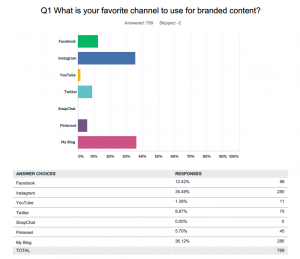
You’re a business with a budget. You have $ 2,000 a month to allocate to Web marketing. Do you hire an SEO specialist or a content marketing specialist?
Neither. Because you’re asking the wrong question to begin with.
SEO and content marketing are not separate entities. They’re not unrelated marketing tactics. They’re interwoven, and they should be working together in your marketing strategy.
As Barry Feldman stated in this article on CMI, “[E]ffective and ethical SEO can’t happen without content to be optimized.”
SEO establishes the technical requirements, but it needs content in order to fulfill them. From producing marketing material that gets published on strategic platforms, to integrating keywords, to cross-linking and linkbacks — without content marketing, SEO is dead in the water. And without SEO, content doesn’t know how to align with modern search-engine demands.
So here’s the right question to ask: How can I optimize my content for better marketing results?
#1: Create and Publish Great, Well-Written Content Across Strategic Channels
I harp on the quality of content a lot in this blog. There are many reasons for that – like credibility, customer experience and message clarity. But a BIG reason I’m so adamant that businesses produce content of the highest possible quality is actually SEO.
The best way to get other people linking to your content is by producing great content. Forbes isn’t going to link to your business blog if it’s riddled with proofreading errors or it’s lacking useful / interesting / entertaining content. The CEO of the company you’re trying to sell to is never going to see your white paper if his office manager isn’t wowed enough to forward it on to him.
Get the picture? If you want to drive people to your content – which is the entire purpose of SEO, right? – quality and content matter in every content marketing asset you create.
But you also have to publish it on the right channels. Deciding where you’re going to publish your marketing assets should be part of your overall marketing strategy.
Where is your audience hanging out online? Are they on Twitter? Do they read the Harvard Business Review online? Do they have the Tech section of The Huffington Post bookmarked for their morning reading? Your platform strategy should start here.
#2: Publish Great Content Consistently
Again, consistency is another content marketing factor I harp on a lot. And again, SEO is a big reason for that. Google likes fresh content. Fresh content gets more rapidly indexed by the search-engine giant. And if your website has authority, fresh content gives it a big SERP (search engine results page) boost. But to build that authority in the first place, you have to publish consistently.
If you’re doing content marketing right, you’re already publishing consistently because your readers appreciate it. They know they can come to your site for a new blog every Monday morning, or that your Twitter feed will have great tweets to share with their followers throughout the day, or that your value-packed newsletter will hit their inbox around the same time each month and they can win some office brownie-points by forwarding it on to their boss. Isn’t it nice to know that your consistent publishing schedule also gives you SEO power too?
There’s a big trust factor in consistent publication that shouldn’t go unacknowledged in this post. Audience-building and search-engine rankings both have a lot to do with trust. Do your readers trust that your content is going to be good? Do they trust that you’ll publish that great content regularly? Do Google’s robots trust that your content isn’t going to make their users stop trusting Google? Consistency goes miles toward building trust.
#3: Use Keywords Intelligently
Hopefully you know what keywords to focus on to get the right eyes on your business online. If not, you don’t need to hire an SEO expert for this (though you certainly can). You can simply use the free Google Adwords Keyword Tool to gain insight.
Within that tool, you’re looking for keywords and key phrases with high monthly searches and low competition. Once you have a set of keywords to work with, you can pick one to write around, or you can retroactively fit it into content you’ve already written. Both methods have benefits – though many people find it easier to naturally fit a keyword into a piece of content when they have the keyword in mind already.
Use the keyword in the following places:
- The page URL
- The title
- The first sentence (or as close to it as you can get) in the first paragraph
- A heading
- The page’s meta data (meta description and meta title)
- Image alt tags
But don’t force the keyword in if it doesn’t make sense! That defeats the purpose by making your content seem contrived.
So where does all of this get you? Pretty far, actually. The keyword is a flag for search engines to mark your content as relevant to that topic. But readers will pick up on the keyword in your marketing asset as well. If your target customers are searching for “inkjet versus laser printer,” and you use those words in your content, they’re going to know they’re in the right place.
Back to You
Content marketing and SEO are inextricably integrated. Your content won’t get found without SEO features. Your SEO will fail if you don’t have great content, published consistently on strategic channels.
In the “SEO versus content marketing” wars, are you taking sides?
Digital & Social Articles on Business 2 Community(118)







